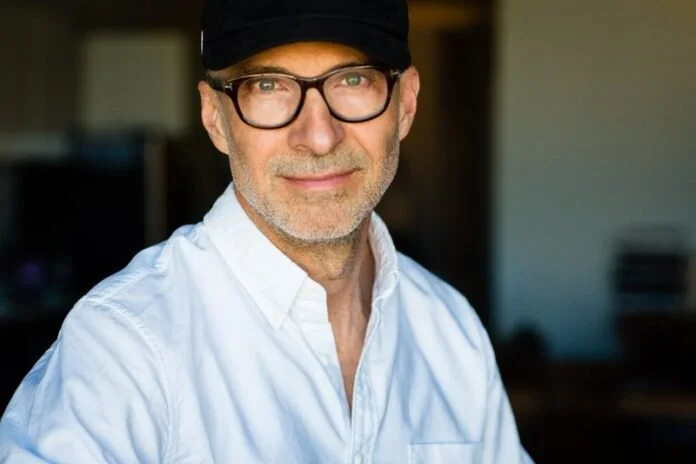Guest post: Simon Jeffries - Bridging the gap
← back
Bridging the gap between physical and mental health.
Guest Post by Simon Jeffries
A 10 minute read: pause, hit the mute button and for a moment, walk through a different narrative
It was 7am and I’d come in early again to try and get ahead of the curve, but for the previous hour I’d just been sitting there
I had a head full of racing thoughts of everything that I needed to get done, but no enthusiasm or energy to do any of it. And I couldn’t figure out how I’d even got to this place where I wasn’t in control, I felt like a shadow of my former self.
This was me 6 months into a new job running a project in Covent Garden for a management consultancy.
However, previous to this I had been a serving member of UK Special Forces, working in hostile environments where I was often required to respond to threats in rapidly evolving situations.
In fact, before hanging up my kit and moving to London I headed up an Afghan arrest force in Kabul. The job was incredibly reactive, always on stand-by to roll out within 30 minutes to track down HVT’s (High Value Target) whose phones had pinged up on our surveillance systems. Tactical strikes would be planned en-route and being able to adapt to new information and threats was essential for mission success.
So to go from high performing to struggling was a new experience for me.
In retrospect I understood it was stress, and more specifically chronic stress.
Serving in Special Forces I regularly experienced acute stress, which is a short and sharp response to a physical threat. This in itself doesn't take a heavy toll if we find ways to relax quickly. During evolution it protected us from dangerous animals for example, and today it does the same job today when we feel threatened.
But because the threat can be real or imagined, and it’s the perception of threat that triggers the stress response, it means we also experience acute stress multiple times throughout the day.
These threats don't need to be intensely threatening—they can be mild stressors like an alarm clock going off, a new assignment at work, or even a phone call that needs to be answered when you're already busy.
In today's busy world we are prone to perceiving a low level of threat in everyday situations, and the more your emergency stress system is activated, the easier it becomes to trigger, making it harder to shut off.
Triggering your stress response frequently, like most people in today’s demanding world, causes your body to exist in a heightened state of stress most of the time, and this is extremely hard on the body.
During my service in the military, I felt completely on top of my game and in control, but in the city, I felt like I was always barely keeping my head above water.
The silver lining is that this experience led to a journey into the world of health and performance which resulted in the founding of my company The Natural Edge, and our signature Limitless 30/30 programme.
Using what I learnt we have helped thousands of people take back control of their health, and one key concept that is key in this process is the idea of bridging the gap between mental and physical health.
I recently saw a speech by Elon Musk in which he emphasised that collaborative engineering is critical to achieve his mission of accelerating the world’s transition to sustainable energy.
The technology used for generation, storage and transportation all need to work together in an integrated way that makes the experience seamless.
Musk is bridging the gap between these sectors, because to him, the future—in which his combined companies will save us from the destructive forces of climate change—is simply “logical”.
For me, I believe it’s time we started to do the same when it comes to health.
The gap must be bridged between physical and mental health.
If you ignore one the other will suffer and you will suffer as a result.
Every single part of your mind and body affects, to a greater or lesser degree, pretty much every other part.
Take sleep for example, it is a part of a larger system of biological rhythms that regulate everything from brain function to muscle repair.
We all have an internal clock which is known as circadian rhythm.
Almost every type of cell in the body is sensitive to your circadian rhythm which means it affects all systems in the body, from digestion to alertness.
This means that nothing in your body will work optimally when your circadian rhythm is out of sync.
Bright light exposure during the day and darkness at night continuously set this clock and keep it in line with the natural cycle of day and night.
Unfortunately, most people do the opposite by rarely getting out into natural sunlight during the day, and spending evenings in front of screens which emit powerful disruptive light waves.
The fitness industry loves to sell individual products that promise to be the ‘cure all’ solution. BUT supplements and superfoods are not the answer!
The ONLY true solution is to address each part of your health equally…
Put as much effort into your night routine as your nutrition, and train your mindset just as you train your muscles.
Until you bridge the gap between physical and mental health it will make working on one or the other so much more difficult.
Stress is the perfect example.
Stress, even when you don’t realise it’s there bubbling away under the surface, has a major effect on your primary physiological systems:
It diverts mental energy away from the command-and-control centre of the brain – the seat of your willpower – and activates the more impulsive parts of your brain, called hot-brain circuits.
Plus a prolonged stress response has been shown to deplete the very nutrients you need to create energy.
Have you ever considered that...
Argument with your friend
Frustrating daily commute
Financial worry
Is part of the reason why you…
Crave foods high in sugar and fat
Lack motivation and drive
Have a weak immune system
Reducing stress is critical if you want to feel your best, but if you don’t take an approach which bridges the gap you will struggle.
You must take action on both a physiological and psychological level.
If you only take physical action (e.g. exercise) you will help to relieve some of the stress you are feeling.
But, stress is 90% down to our own perception of the world around us, and reaction to the events in our life.
So unless you work on your mindset and become less susceptible to stress it will be like bailing water from a sinking ship without plugging the leak.
On the other hand if you try and tackle your mindset without taking action to calm your autonomic nervous system, and let your body rebalance, then you will find it so much harder because you’ll be in that state of low energy and brain fog.
So it’s essential that it’s a dual approach. That you bridge the gap!
By attempting to simplify health down into individual parts we have ironically made it more complicated.
But with simple steps you can treat the mind and body as one system:
Follow the natural rhythm of the day by sleeping in the dark, and waking with light
Eat a wide range of whole foods most of the time
Move regularly in a way that you enjoy
Have strong social bonds and do things that make you smile
Follow a basic mindfulness practice
Just like Musk bridging the gap between energy sectors, doing the same for your health is simply “logical”.
About the interviewee
Simon Jeffries, is an ex special forces operative with many years military experience. He now co owns a health and wellbeing company called ‘The Natural Edge’. An online platform that is designed to develop the mind and body through health, habits and performance. They also run health retreats and micro outdoor adventures.
Become a contributor and engage with The Future Farm
Are you interested in contributing on the topic of entrepreneur health and emotional resilience with us? Or interested in inviting The Future Farm to contribute to your initiatives or event? Drop us a note.




